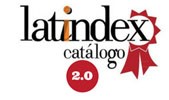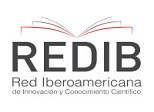Text Selectivity for the Treatment of Climate Change Confrontation through Grammar Classes
Keywords:
syntactic lexical classes; Life task; communicative skills.Abstract
The development of skills in students of pedagogical careers, and especially of the specialists of Spanish-Literature, of the University of Las Tunas constitutes a constant concern of educators and researchers, who have directed their research towards the achievement of this goal and their relationship with the Life Task, which is defined as the Cuban State's plan for confronting climate change. The application of research methods and techniques, such as observation to the educational teaching process, the inductive-deductive and the analysis-synthesis showed that difficulties in this objective persist. In this case study, the objective is the elaboration of activities to enhance the confrontation with climate change (Life Task) from the analysis and use of the lexical-syntactic classes of words in texts of different functional styles in the Grammar classes, which favors the development of knowledge, skills and habits in correspondence with the aim of the Cuban Education. It is concluded that the systematization of the theoretical foundations reveals that from the content of the subject Spanish Grammar I, and the methodological treatment for the selectivity of the text in the teaching-learning process, the Life Task can be enhanced, and thus contribute to the comprehensive training of future Spanish-Literature professionals.
References
Bernárdez, E. (1982). Introducción a la lingüística del texto. Madrid: Espasa- Calpe.
Domínguez, I. (2009). Comunicación y texto. La Habana: Editorial Pueblo y Educación.
Dubsky, J. (1989). Introducción a la estilística de la lengua. En: Selección de lecturas para redacción. La Habana: Editorial Pueblo y Educación.
García Alzola, E. (1992). Lengua y Literatura. La Habana: Editorial Pueblo y Educación.
Ministerio de Educación Superior. (2016). Modelo del Profesional Carrera: Licenciatura en Educación, Especialidad Español-Literatura, plan de estudios E. La Habana: Editorial Pueblo y Educación.
Montaño Calcines, J. R. (2010). (Re)novando la enseñanza-aprendizaje de la Lengua Española y la Literatura. La Habana: Editorial Pueblo y Educación.
Roméu Escobar, A. (2007). El enfoque cognitivo, comunicativo y sociocultural en la enseñanza de la lengua y la literatura. La Habana: Pueblo y Educación.
Velarde, M. C. (1993). Introducción a la gramática del texto del español. Arco Libros. Recuperado de https://books.google.com.cu/books/about/Introducci%C3%B3n_a_la_gram%C3%A1tica_del_texto.html?id=74mIFmpGaPMC&printsec=frontcover&source=kp _read_button&redir_esc=y#v=onepage&q&f=false
Published
How to Cite
Issue
Section
License
Los artículos enviados a la Revista Científica Hallazgos21 deberán ser totalmente originales e inéditos.
Los autores son los responsables de los textos y las imágenes incluidas en los artículos y no necesariamente reflejan el pensamiento de la editorial o de la Pontificia Universidad Católica del Ecuador, Sede Esmeraldas (PUCESE).
Los autores disponen cederle a la Revista Científica Hallazgos21 todos los derechos inherentes para la edición, publicación y distribución o divulgación del mismo.
Se autoriza a las revistas firmantes de los acuerdos de Encuentros de Revistas Latinoamericanas para reproducir en parte o totalmente los artículos con la sola mención de la fuente claramente señalada.







